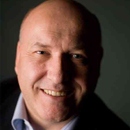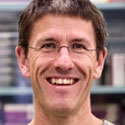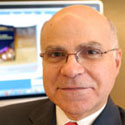Advisory Board and Editors Immunology

Melissa M Grant
Senior Lecturer in Biological Sciences, University of Birmingham, UK
Co-lead for the Periodontal Research Group (PRG)
Melissa graduated in 1997 with a BSc in Biochemistry and immediately took up a CASE Award (Du Pont) PhD in the laboratories of Dr Dennis Briggs, studying enzymes involved in the germination of wheat grain. These enzymes would ultimately be exploited in the improvement of animal feeds and in bread baking, allowing bread to rise more and yield a ‘fluffier’ loaf.
She was introduced to the field of proteomic research at the end of her PhD and subsequently went on to set up the proteomic laboratory of Prof Helen Griffiths at Aston University. Leading on from her interests in nutrition Melissa investigated the effects of vitamins C, E and folate on human health and disease, including cancer, Alzheimer’s and heart diseases. She analysed both human plasma samples and cell culture derived samples, generating a number of papers during this post doctoral research.
In 2005 she joined the School of Dentistry's Periodontal Research Group at the University of Birmingham as lead postdoctoral fellow on projects to assess how micronutrients could be used to improve oral health. She was appointed as lecturer in 2011 in Biological Sciences and has office and laboratory space in both the schools of dentistry and biosciences.

Fanglin Guan
Prof. Fanglin Guan is Dean at Xi'an Jiaotong University. He is engaged in the integrated biological research of complex diseases, including tumor microenvironment and novel immunotherapeutic modalities, and research on the mechanisms and medical applications related to tumor cell vaccines, especially for the exploration of the mechanism of determining the biomarkers of complex diseases.

Deniz Can Güven
Dr. Deniz Can Güven is a medical oncologist in the Department of Medical Oncology at Hacettepe University.
His primary research interest focuses on immuno-oncology.

James Harris
Group Leader in Arthritis and Lupus Research Group, Department of Medicine, Monash University. Interests in cytokine biology, inflammasomes, MIF, autophagy, inflammation, innate immunity, veterinary and comparative immunology.
Deputy Editor, Immunology and Cell Biology.
Review Editor, Frontiers in Immunology.
Editorial Board member, Arthritis Research & Therapy.

Thomas Hartung
Professor of Toxicology (Chair for Evidence-based Toxicology), Pharmacology, Molecular Microbiology and Immunology at Johns Hopkins Bloomberg School of Public Health, Baltimore, and University of Konstanz, Germany; Director of their Centers for Alternatives to Animal Testing (CAAT). Former Head of the European Center for the Validation of Alternative Methods (ECVAM), Ispra, Italy.

Branka Horvat
MD PhD,
Head of the team Immunobiology of Viral Infection;
Research in the field of interaction between the virus and the immune system

Altijana Hromić-Jahjefendić
Dr. Altijana Hromić-Jahjefendić is an associate professor at the Genetics and Bioengineering Department at International University of Sarajevo, Bosnia and Herzegovina. She obtained her bachelor's degree in chemistry and master's degree in Biochemistry and Molecular Biomedicine at Graz University of Technology, Austria. After that she worked for Austrian Center of Industrial Biotechnology and continued to pursue her PhD degree in Biochemistry and Molecular Biomedicine with the focus on Structural biology. Since 2018. she works as professor at International University of Sarajevo at the Genetics and Bioengineering Department. She authored many scientific publications with international colleagues in the field of COVID-19 and cancer research.

Christopher J. Jolly
Head of the DNA Repair Group, Centenary Institute, Sydney, Australia
Postdoctoral Fellow, MRC Laboratory of Molecular Biology, Cambridge, UK
Postdoctoral Fellow, John Curtin School of Medical Research, ANU, Canberra
PhD, Macquarie University/CSIRO, Sydney
Christine Josenhans
Christine Josenhans is Professor for Microbiology and Medical Microbiology at Max von Pettenkofer Institute of Ludwig Maximilians University Munich and an infectious disease specialist. Until 2017, she was Associate Professor at Hannover Medical School, Germany, also in the field of infection research and molecular and cellular microbiology. Her research foci are on infectious disease agents in general, with specialization in microbiology, biochemistry, immunology, and host-pathogen interactions. She performed her Post-doctoral studies on Yersinia host-pathogen interactions, more specifically on their type III secretion system pore proteins. Current research foci are in persistent bacterial and viral infections, host-pathogen crosstalk and immune interference, as well as in the causal link between infections and cancer.
She is on the board of several undergraduate and graduate teaching programs.

Haseeb A. Khan
Distinguished Professor of Biochemistry at College of Science, King Saud University, Riyadh, Saudi Arabia. Group Leader of Analytical and Molecular Bioscience Research Group and a Chair Professor at Research Chair for Biomedical Applications of Nanomaterials, King Saud University. PhD from Aligarh Muslim University, Aligarh, India and received scientific trainings in USA, UK, Denmark and Finland. Fellow of the Royal College of Pathologists (FRCPath) and the Royal Society of Chemistry (FRSC), UK. Authored more than 300 publications including 2 books and 20 book chapters. Recipient of Microsoft eScience Award. Listed in Top-2% World Ranking of Scientists. Research interests are clinical biochemistry, analytical chemistry, environmental chemistry, nanobiotechnology, molecular conservation, bioinformatics, pharmacology, and toxicology.

Theerapong Krajaejun
Professor of Clinical Pathology, Department of Pathology, Faculty of Medicine, Ramathibodi Hospital, Mahidol University, Bangkok, Thailand.

Ziad Kronfol
Ziad Kronfol, M.D. is Professor of Psychiatry and Psychiatry Clerkship Director at Weill Cornell Medicine – Qatar. He previously was Associate Professor of Psychiatry and Director of the Psychoneuroimmunology Program at the University of Michigan in Ann Arbor. Dr. Kronfol is past Vice-President of the Asian Federation of Psychiatric Associations, Distinguished Life Fellow of the American Psychiatric Association and member of the section on education in the World Psychiatric Association.

